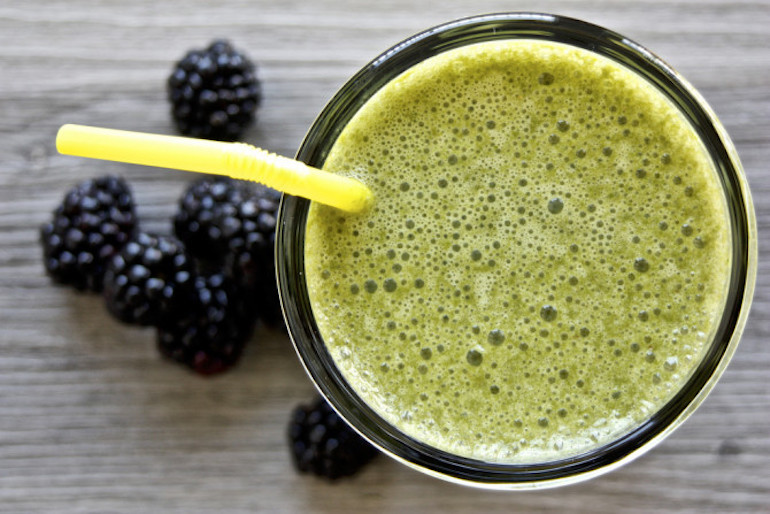Most of the time, when I tell people I’m full, I get a reaction along the lines of, “Are you sure you’ve eaten enough?” Or, in the case of my ex-boyfriend’s sassy grandma, “You don’t eat anything!”
Trust me, I’d eat another slice of pizza if I could. And a couple cookies on top of that. But I can’t — I physically can’t. I have a stomach disorder called gastroparesis, which literally means “paralysis of the stomach.” Sounds disturbing, right? Well, it is.

Photo by Nancy Chen
Recognizing the Problem
Though I had experienced minor digestive issues like cramps and constipation (please don’t laugh… I had to stay home sick because of it) throughout high school, I never actually discovered what was wrong until the middle of my freshman year of college.
After eating what seemed to be normal — even smaller than average — amounts of food, I constantly felt bloated and sluggish. At the risk of TMI, I would burp for hours on end. It was like having a permanent food baby. Yeah, not fun.
I didn’t understand how my friends could consume an entire bread basket before their meal and still have room for dessert when I felt like I was going to die after eating a fraction of that. It didn’t seem fair.
And it didn’t help to have people constantly telling me, “Wow, Meredith, you’re so healthy and tiny. I’m jealous.” Healthy, tiny, and essentially starving. So, to the those who’ve said you wish you had a sensitive stomach to make you skinny, you really don’t.

GIF courtesy of digg.tumblr.com
Receiving the Diagnosis
I finally went to the gastroenterologist over winter break that year. He asked me a bunch of questions, inspected my fingerprints for signs of genetic patterns (definitely didn’t know that was a thing), and listened to my stomach, which was as awkward as it sounds.
Then, he explained my condition. My digestive muscles work much more slowly than they should, and my stomach isn’t able to empty properly; it also can’t process excessive fats or high amounts of fiber at a given time. Basically, I get full too quickly, so I have to keep my diet in check to feel good after I eat.
Since food is obviously my one true love, these limitations disheartened and frustrated me. It felt like my dreams of traveling the world for the sole purpose of stuffing my face were crumbling. But I was relieved to know that my case wasn’t nearly as bad as it could be.
Many who suffer silently through gastroparesis have no other choice than to function on a strict liquid diet. Whereas my stomach is slower than usual, other people’s muscles may barely move at all. Serious props to all of the fighters who are braving life through a straw.

Photo by Christin Urso
Finding the Solution
Once I received my diagnosis, I immediately jumped on the gluten free bandwagon in an effort to make everything better. I thought cutting out gluten could solve all of my problems, just like it did for my stepbrother who has Celiac disease (actually a legitimate reason, guys). Shocker: It didn’t.
Instead, I discovered that it’s all about balance. In some ways, I am thankful for the fact that my body essentially forces me to be mindful. I space out small meals throughout the day — which is pretty dang healthy anyways — and make sure that the carbs and fats I do eat (never gonna give you up) are wholesome.
Other than eating a nutritious diet and staying hydrated, exercising consistently is also super important. It keeps all of those stomach juices flowing. I personally prefer to work out first thing in the morning to start off my day with a vengeance. After refueling with a frosty green smoothie, I leave for class feeling like a champ.
But, from what I’ve learned, mental health is just as important as anything physical. Developing a healthy relationship with food goes far beyond what’s on my plate. Food is not the enemy. Yes, taking care of myself is key, but that doesn’t mean I need to fear food. All it takes is a bit of adjusting.

Photo by Lila Seeley
When I do indulge by shamelessly wolfing down a huge ice cream cone, I know my stomach won’t be too happy with me. But we all need to live a little. As my mom always says, “Everything in moderation.”
Generally, though, remember to listen to your body; it could be telling you something major. Don’t hesitate to seek help, either. Ignoring pain won’t make it go away, but adjusting your lifestyle to meet your body’s needs can totally change your life. Trust me on that.

GIF courtesy of tumblr.com


